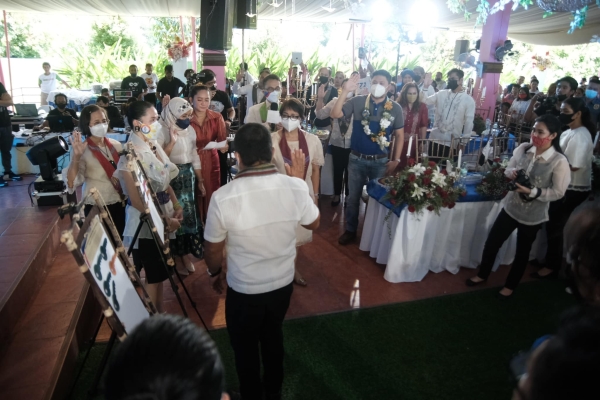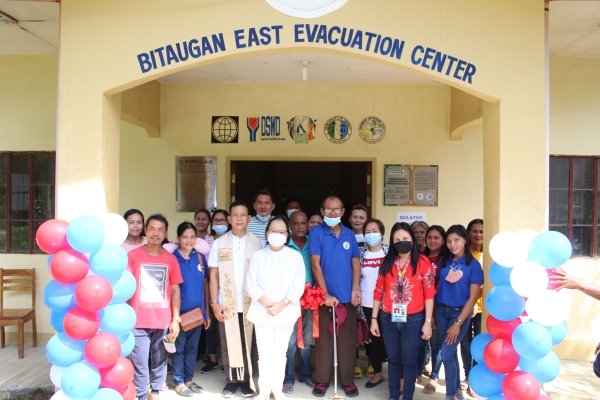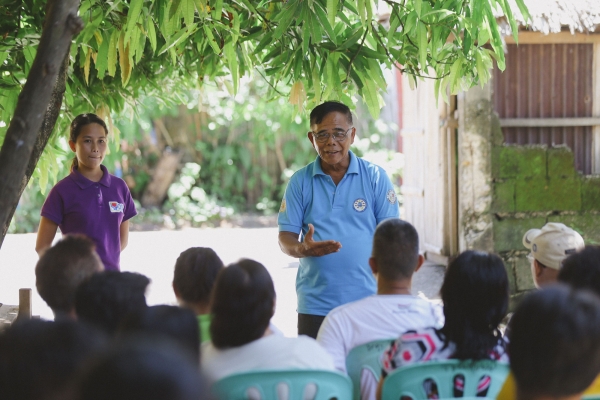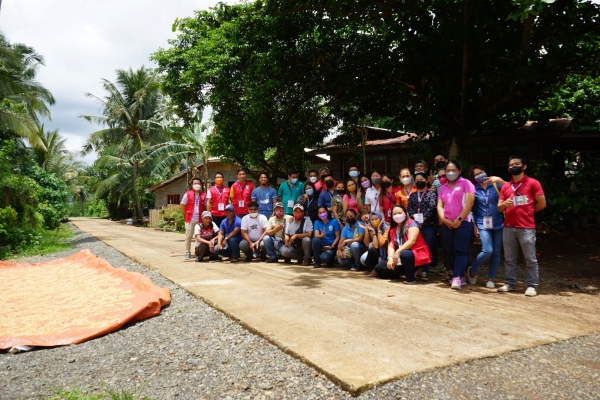Through the Community-Driven Development (CDD) approach, Kalahi-CIDSS empowers Filipinos to take the lead in their community's development.

From completed subprojects to renewed commitment to the Balik Probinsya, Bagong Pag-asa program, get up to speed with all that happened in August.

Dipolog City - The Balik Probinsya, Bagong Pag-asa (BP2) Program held a program convergence activity themed “Sama-samang Pagkilos Tungo sa Bagong Pag-asa”, on 11 August 2022 at the Royal Farm Resort in Dipolog City, Zamboanga del Norte.

Former Mayor Lillian Y. Lozada of Cagwait town, Surigao del Sur has hailed all the community volunteers in the municipality for their committed participation and contribution to the development in their barangays.
The CDD Bill will provide opportunities for ordinary Filipinos, especially those who are poor, vulnerable, and marginalized, to participate in identifying, planning, budgeting, implementing, monitoring, and evaluating community-based programs, projects, and activities.

The Kapit-Bisig Laban sa Kahirapan - Comprehensive and Integrated Delivery of Social Services (KALAHI-CIDSS) is one of the Philippine government’s primary community empowerment and poverty alleviation programs. While KALAHI-CIDSS has various modalities, they all have one thing in common: all KALAHI-CIDSS modalities are implemented through the Community-Driven Development (CDD) approach.

It’s the first time for Brgy. Bayabason in Maramag, Bukidnon, to implement a road concreting project under the KALAHI-CIDSS NCDDP, and according to its officials, their learning experience will take them far in leading development projects in the future.
KALAHI-CIDSS enables the effective and efficient delivery of social services through the CDD's core principles of Transparency, Participation, and Accountability
KALAHI-CIDSS empowers community members to become active drivers of development by facilitating the implementation of community sub-projects, especially in the poorest and most marginalized communities of the country

Transparency is operationalized when community members are able to participate in all levels of decision-making. The execution, implementation, monitoring, and management of community-based projects implemented by NGAs and LGUs are led by the community members.

Participation is operationalized when national government agencies and LGUs allow and foster the meaningful participation of community members throughout the development process. This participation should be present not only in the identification of community issues and problems, but also in the implementation of solutions to address them.

Accountability is operationalized when community members are engaged in the monitoring and evaluation of projects. Moreover, there is accountability when community members are empowered to take actions based on information that they themselves chose to take into consideration.